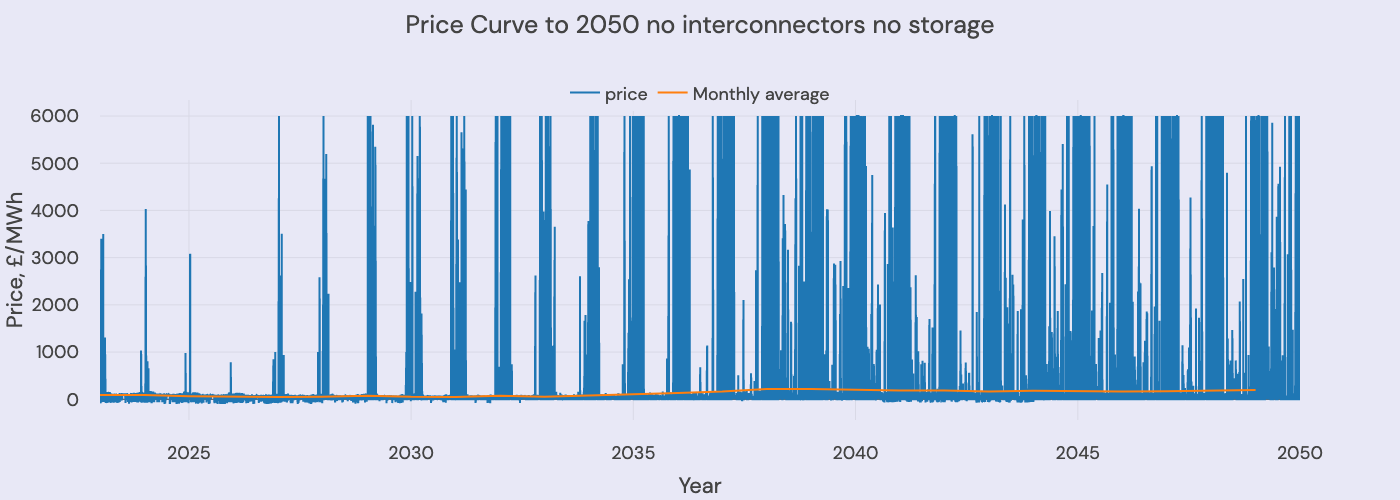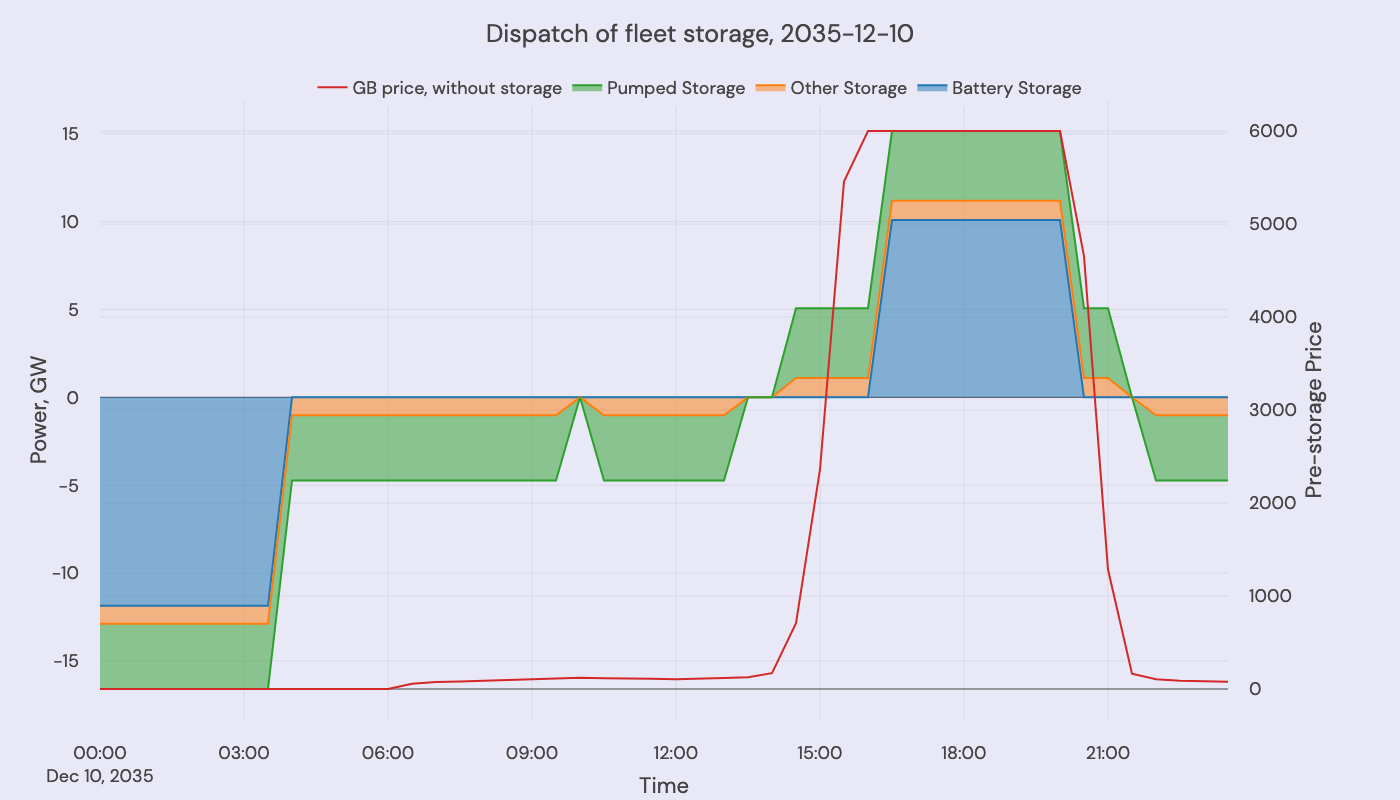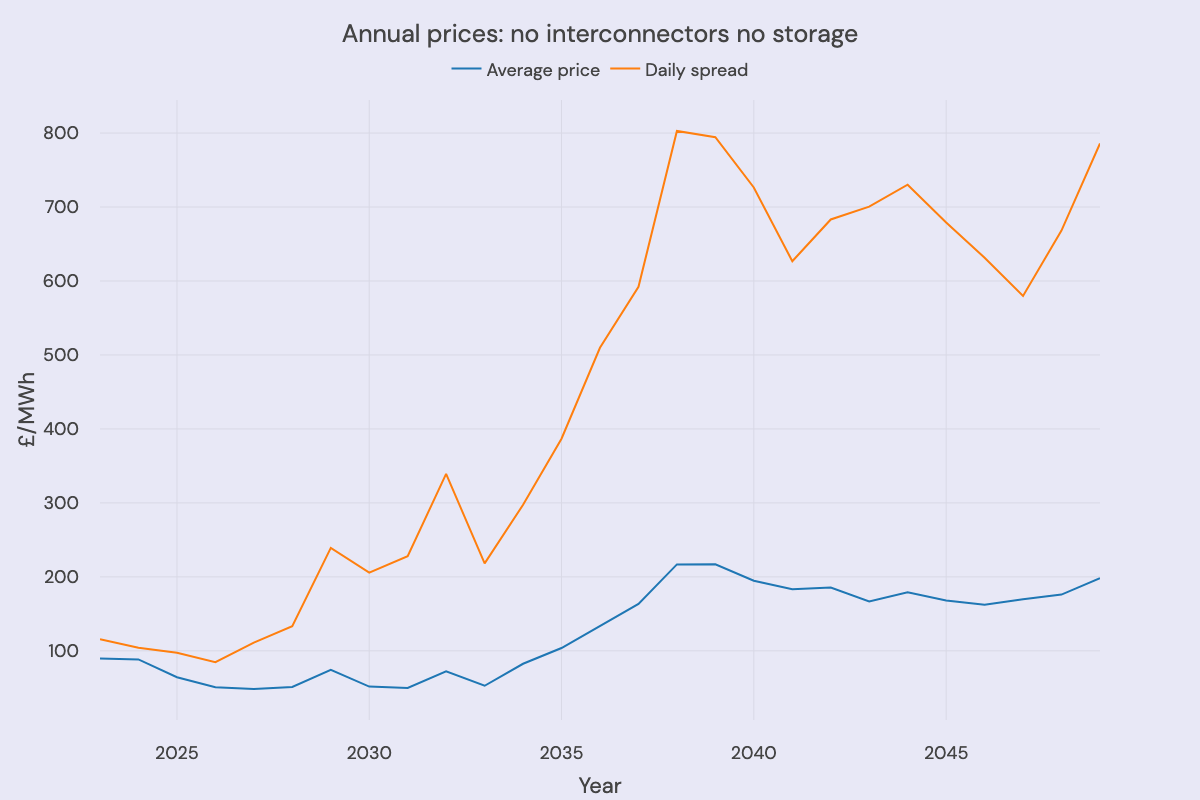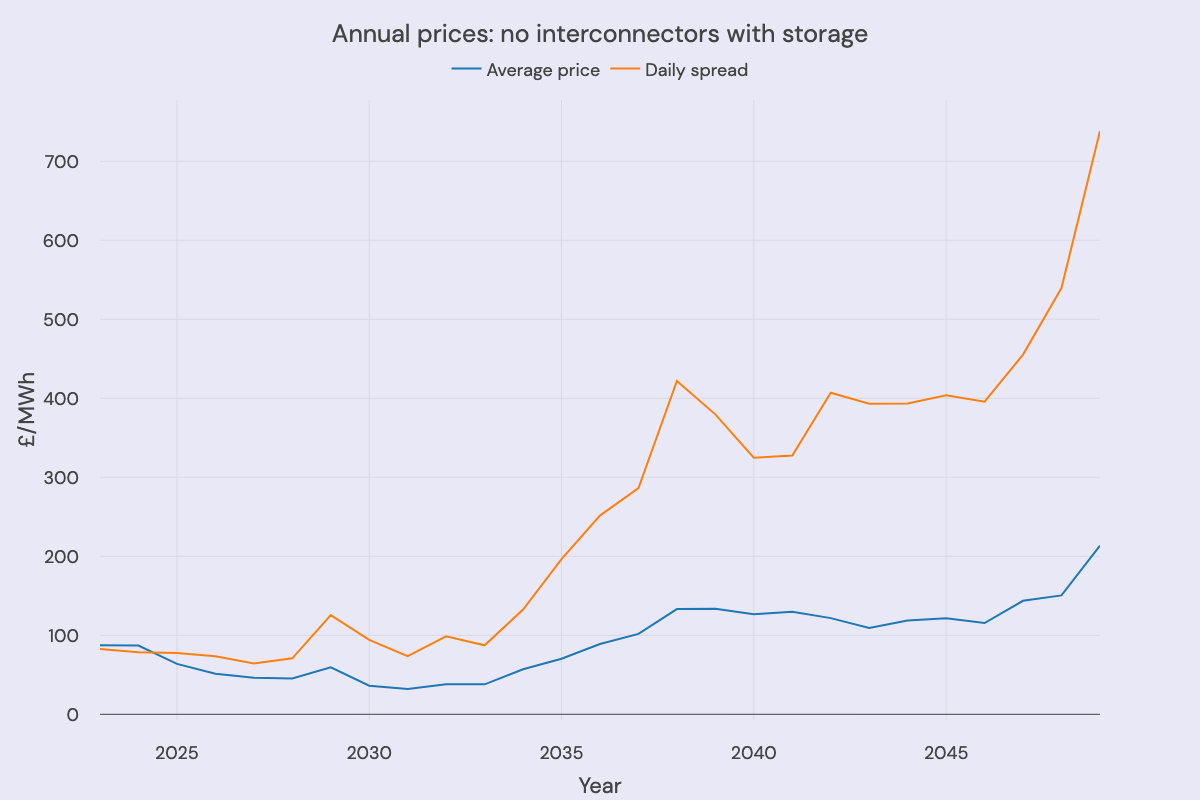Impact of storage
Storage charges when it's cheap, and discharges when it's expensive. It dampens these high prices.
Dispatch the fleet against the price signal created without storage

Given the daily GB price without storage (which contains many hours at loss of load - ie £6000/MWh price spikes due to a lack of capacity on the system without it), we get a price signal to optimize the storage fleet against and derive a GB price with storage.
Some of the storage fleet will provide grid services like frequency response
We take out the ancillary requirement from the overall storage fleet to get the 'merchant' fleet - assuming storage that does not participate in ancillary markets will instead deploy its flexibility in wholesale markets.
If we were to run a linear optimization of the fleet against the peak price, the whole fleet would dispatch into the high price period(s), dampening or cannibalizing that high price period. In reality, a single price spike would be softened or spread into neighboring settlement periods.
In practice, not everyone will predict the peak correctly. Or, they may dispatch across multiple periods to reduce the risk of cannibalizing the single high-price period. Or, more likely, auction bid tooling would have a similar impact - where bids are placed that require a minimum spread, for example.
So, we discharge the wholesale fleet over the most expensive settlement periods and charge the assets over the cheapest ones. The number of settlement periods we charge and discharge over is set by the fleet's duration in hours (and the fleet's efficiency). We spread the charging energy (which is also dependent on efficiency) over 3x the number of hours, and the discharging over 2x the number of hours. Unless that number is > 6 (discharging) or 12 hours (charging) in which case it is capped.
Duration of fleet charging and discharging is set by efficiency and the average duration of the storage type across the fleet
Wholesale fleet typically charges overnight and discharges during evening peak

We require a minimum spread to dispatch the storage type and don't discharge for negative prices.
Once we have the daily charge and discharge profile for pumped storage, other storage, and battery storage:
- Any charging is added to national demand.
- Any discharging is added to the generation stack, where the short-run marginal cost of the storage is dictated by the charging price plus a required spread.
We then re-run to get the marginal price with the new demand and generation, including storage
And we go from this:

To this:

Updated about 1 month ago